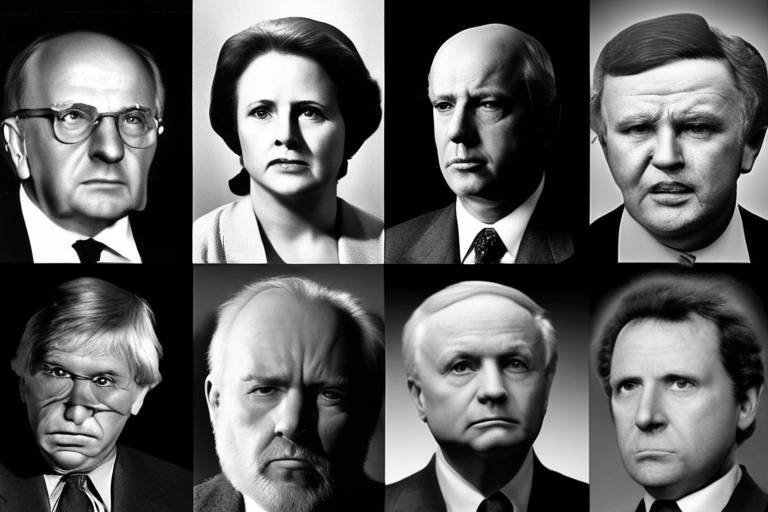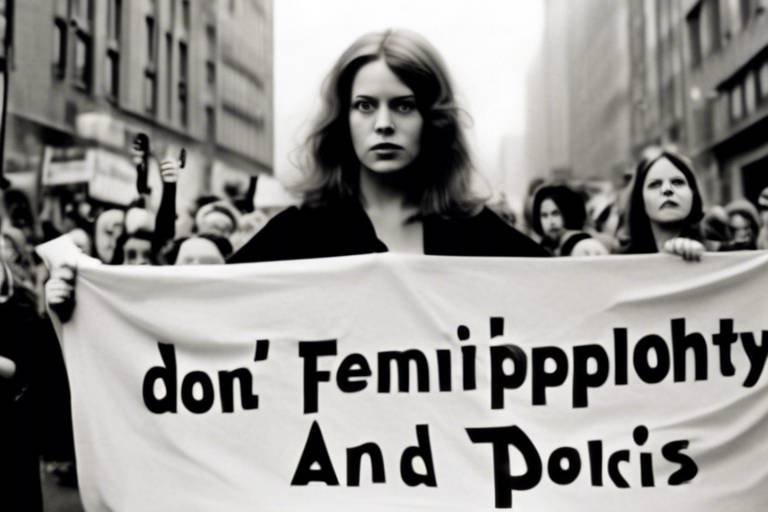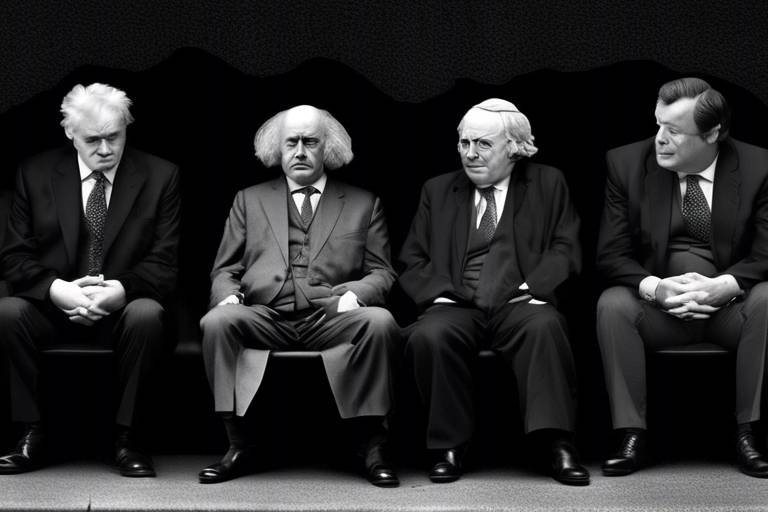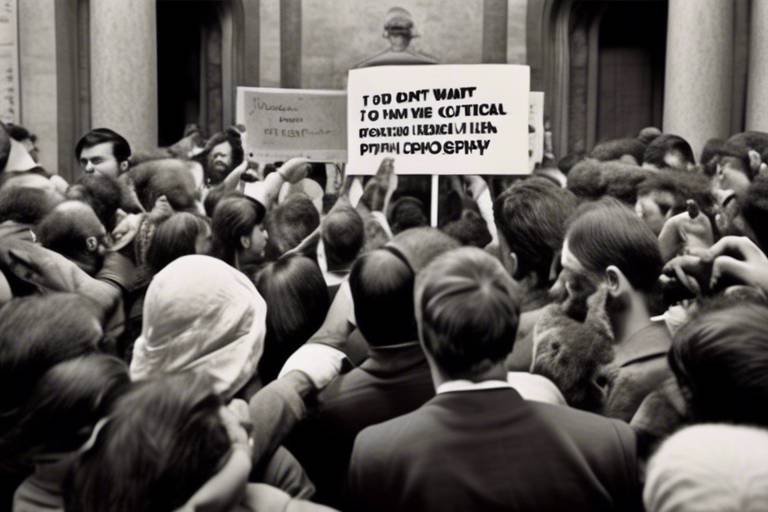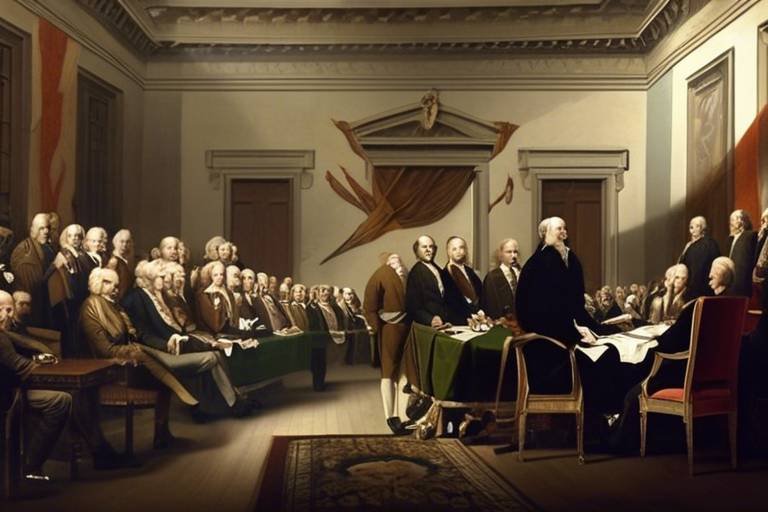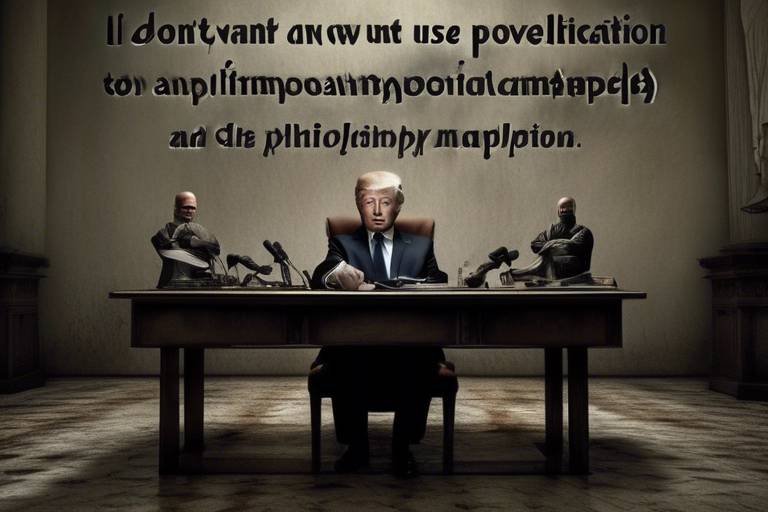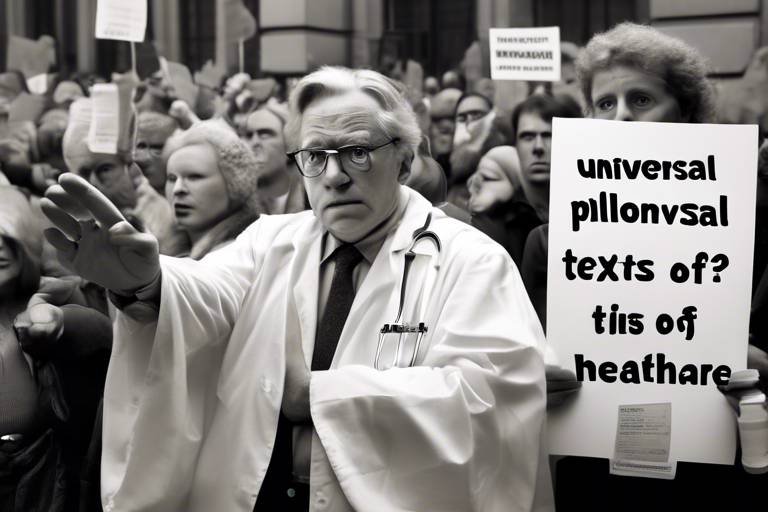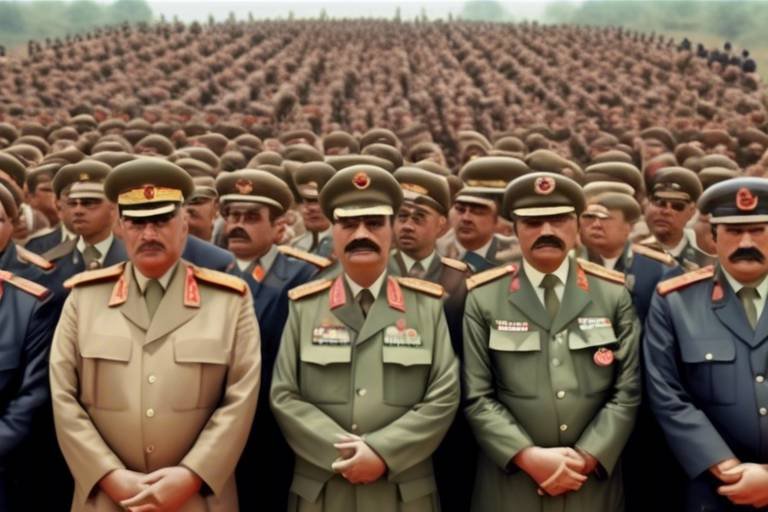Philosophy and Political Theory - The Intricate Connections
Philosophy and political theory are intertwined in a dance as old as civilization itself. Every time we ponder the nature of justice, freedom, or authority, we are engaging in a philosophical exercise that has profound implications for how societies are structured and governed. But what exactly is the connection? At its core, philosophy provides the foundational ideas that shape political thought, influencing everything from governance to social ethics. Think of it as the bedrock upon which political ideologies are built, much like how a sturdy foundation supports a towering skyscraper.
Throughout history, philosophers have grappled with fundamental questions about the role of the individual within society, the legitimacy of power, and the nature of justice. These inquiries have not only shaped political discourse but have also led to the development of various systems of governance. For instance, the ancient Greeks laid the groundwork for democratic principles, while Enlightenment thinkers challenged traditional notions of authority, paving the way for modern democratic states. In essence, political theory is the living embodiment of philosophical ideas applied to the realm of governance.
As we dive deeper into the intricate connections between philosophy and political theory, we will explore how key philosophical concepts have evolved over time and influenced contemporary political ideologies. From the ideal state envisioned by Plato to Aristotle's practical approach to politics, the ideas of these early thinkers continue to resonate in today's political landscape. Furthermore, we will examine the social contract theories that emerged during the Enlightenment, which fundamentally altered our understanding of state authority and individual rights.
In this exploration, we will also consider how modern political ideologies, such as liberalism, conservatism, and socialism, are rooted in philosophical thought. Each ideology carries its unique philosophical baggage, influencing how we view individualism, community, and the common good. By understanding these connections, we can better appreciate the complexities of our political systems and the ethical dilemmas that arise within them.
Ultimately, the relationship between philosophy and political theory is not merely academic; it is a vital conversation that shapes our world. As we engage with these ideas, we are not just studying history; we are actively participating in the ongoing dialogue about what it means to live in a just society. So, buckle up as we embark on this intellectual journey to uncover the profound interconnections between philosophy and political theory!
- What is the significance of philosophy in political theory? Philosophy provides the foundational ideas and ethical frameworks that shape political thought and governance.
- How have historical philosophers influenced modern politics? Philosophers like Plato and Aristotle laid the groundwork for concepts such as democracy and civic engagement, which are still relevant today.
- What are social contract theories? Social contract theories explore the legitimacy of state authority and the rights of individuals, significantly impacting democratic principles.
- How do modern political ideologies relate to philosophy? Modern ideologies like liberalism and socialism are rooted in philosophical ideas about individual rights, community, and the common good.

The Foundations of Political Philosophy
Political philosophy serves as the backbone of our understanding of governance, ethics, and social structures. At its core, it grapples with fundamental questions about power, justice, and the role of individuals within society. These foundational ideas have evolved over centuries, shaping the political landscapes we see today. Imagine political philosophy as a grand tapestry, woven from the threads of various philosophical concepts, each contributing to a greater understanding of how societies function.
One of the central themes in political philosophy is the concept of justice. Philosophers have long debated what justice truly means and how it should be applied in real-world scenarios. This discussion often leads to the exploration of rights and responsibilities—two sides of the same coin. For example, when we think about individual rights, we must also consider the responsibilities that come with those rights. This interplay creates a dynamic framework for evaluating political systems.
Another crucial element is the idea of the social contract, a theory that suggests individuals consent, either explicitly or implicitly, to surrender some freedoms in exchange for protection and the benefits of organized society. Think of it as a handshake between citizens and their government, where both parties agree to uphold certain values and responsibilities. This concept has been pivotal in shaping modern democratic principles and the legitimacy of state authority.
Moreover, the evolution of political thought has led to diverse ideologies that reflect different philosophical foundations. For instance, the tension between liberty and equality often stems from philosophical debates about human nature and the role of the state. These discussions are not merely academic; they have real-world implications on how laws are crafted and enforced, influencing everything from taxation to civil rights.
To illustrate these connections, let's consider a table that summarizes some key philosophical concepts and their implications for political thought:
| Philosophical Concept | Key Thinkers | Political Implications |
|---|---|---|
| Justice | Plato, Rawls | Framework for evaluating laws and policies |
| Social Contract | Hobbes, Locke, Rousseau | Legitimacy of government authority |
| Liberty vs. Equality | Mill, Marx | Debates on individual rights vs. collective good |
In conclusion, the foundations of political philosophy are intricate and multifaceted, providing us with the tools to critically analyze our political systems. As we navigate through various ideologies and theories, it's essential to understand that these philosophical underpinnings not only inform our beliefs but also shape the very fabric of our societies. They compel us to ask challenging questions: What is the role of the state? How do we balance individual freedoms with social responsibilities? These inquiries are not just theoretical musings; they are vital to our collective future.
- What is political philosophy? Political philosophy is the study of fundamental questions about government, justice, rights, and the role of individuals in society.
- How does political philosophy influence modern governance? It provides the foundational ideas that shape laws, policies, and political ideologies, guiding how societies function.
- Who are some key thinkers in political philosophy? Influential philosophers include Plato, Aristotle, Hobbes, Locke, Rousseau, and Mill, each contributing unique perspectives on governance and ethics.

Influential Philosophers and Their Theories
Throughout history, numerous philosophers have made significant contributions to political theory, shaping our understanding of governance, ethics, and the role of the individual within society. These thinkers have not only provided foundational ideas that influence contemporary politics but also sparked debates that continue to resonate today. Their theories often reflect the complexities of human nature and the intricacies of social structures, making them essential to the study of political philosophy.
One of the most notable figures in this realm is Plato, whose vision of an ideal state has captivated minds for centuries. In his work, "The Republic," Plato introduces the concept of the philosopher-king, a ruler who possesses both wisdom and virtue, ensuring just governance. He argues that a society can only thrive when its leaders are knowledgeable and morally sound. This idea raises an intriguing question: can true justice be achieved under any other form of leadership? Plato's insistence on the importance of philosophical understanding in governance continues to challenge our perceptions of leadership today.
Following in Plato's footsteps, Aristotle offered a more pragmatic approach to political theory. Unlike his mentor, Aristotle focused on the realities of human behavior and the importance of ethics in political life. He believed that politics should aim at achieving the common good and that citizens must engage actively in civic life. Aristotle's emphasis on virtue ethics suggests that moral character is crucial for a well-functioning society, prompting us to reflect: how can we cultivate virtue in our political leaders and ourselves?
The evolution of political thought didn't stop there. The emergence of social contract theories marked a pivotal shift in how we understand authority and individual rights. Thinkers like Hobbes, Locke, and Rousseau each presented distinct views on the relationship between the state and the individual. Hobbes, in his work "Leviathan," argued for a powerful sovereign to maintain order, while Locke championed the idea of natural rights, asserting that government should protect individual freedoms. Rousseau took a different path, emphasizing the importance of the collective will and the social contract as a means of achieving true freedom. These contrasting ideas raise the question: how do we balance individual rights with the needs of society?
Another influential concept in political philosophy is utilitarianism, primarily associated with philosophers like Jeremy Bentham and John Stuart Mill. This ethical framework posits that the best actions are those that maximize overall happiness. In political decision-making, utilitarianism encourages leaders to consider the consequences of their policies on the greatest number of people. However, this approach also invites scrutiny: can the pursuit of the greater good sometimes justify harmful actions against minorities?
As we delve deeper into the contributions of these philosophers, it's essential to recognize the lasting impact of their ideas on modern political ideologies. The interplay between individual rights and collective responsibilities continues to shape contemporary discourse, prompting ongoing debates about the role of government, justice, and ethical governance. In this ever-evolving landscape, the insights of these influential thinkers remain invaluable, guiding us in our quest for a just and equitable society.
- What is political philosophy? Political philosophy is the study of fundamental questions about the state, government, politics, liberty, justice, and the enforcement of a legal code by authority.
- Who are the most influential political philosophers? Some of the most influential political philosophers include Plato, Aristotle, Hobbes, Locke, Rousseau, Bentham, and Mill, each contributing unique perspectives on governance and ethics.
- How do philosophical ideas influence modern politics? Philosophical ideas provide the foundational principles upon which political systems are built, influencing laws, governance structures, and the ethical considerations of policies.
- What is the significance of the social contract? The social contract is significant as it explores the legitimacy of authority and the rights of individuals, shaping modern democratic principles and discussions on governance.

Plato's Ideal State
When we delve into the realm of Plato's ideal state, we enter a world where philosophy and governance intertwine in a dance of **justice**, **wisdom**, and **virtue**. Plato, through his seminal work "The Republic," presents a vision of a society governed by philosopher-kings—individuals who possess not only the intellectual prowess but also the moral integrity to lead. Imagine a city where rulers are not swayed by personal gain but are instead driven by a profound understanding of the **good**. This is the essence of Plato's ideal state, and it raises some intriguing questions about the nature of leadership and authority.
At the heart of Plato's philosophy is the concept of **justice**. He argues that a just society is one where each class performs its designated role harmoniously. In his ideal state, there are three main classes:
- The Rulers: The philosopher-kings who govern based on knowledge and wisdom.
- The Guardians: The warriors responsible for protecting the state and enforcing its laws.
- The Producers: The farmers, artisans, and merchants who provide for the material needs of the society.
This tripartite structure is crucial for achieving a balanced and just society. Plato believed that each class must perform its function without overstepping its boundaries. Just as in a well-tuned orchestra, where each musician plays their part, the harmony of the state depends on the proper functioning of its classes. But what happens when these roles are blurred? Plato feared that such confusion could lead to chaos and injustice, a theme that resonates even in today's political discourse.
Moreover, Plato's ideal state is rooted in the **Theory of Forms**, where the highest form is the Form of the Good. He posits that only those who have grasped this ultimate truth should wield power. This raises a compelling argument about the qualifications of leaders. Are politicians today equipped with the knowledge and virtue required to lead effectively? Plato would likely argue that without this philosophical grounding, governance becomes a mere shadow of what it could be.
Another striking aspect of Plato's vision is the **concept of education**. He believed that a rigorous educational system is essential to cultivate the philosopher-kings. Education, for Plato, is not just about the acquisition of knowledge; it is about shaping the soul and instilling a sense of justice and virtue. In his ideal state, education is tailored to prepare the rulers, emphasizing subjects that foster critical thinking and moral reasoning. This leads us to ponder: how can modern educational systems evolve to produce leaders who embody these ideals?
In conclusion, Plato's ideal state is more than just a theoretical construct; it is a profound commentary on the nature of governance and the moral responsibilities of leaders. His ideas challenge us to reflect on our political systems and the qualities we value in our leaders. Are we, as a society, striving for a governance model that prioritizes wisdom and justice, or are we settling for something far less? As we navigate the complexities of modern politics, Plato's vision serves as a guiding light, urging us to seek a higher standard in our pursuit of the common good.
- What is Plato's ideal state? Plato's ideal state is a theoretical concept where society is governed by philosopher-kings who possess wisdom and moral integrity.
- How does Plato define justice? Plato defines justice as each class in society performing its role harmoniously without overstepping its boundaries.
- What role does education play in Plato's ideal state? Education is crucial for cultivating philosopher-kings and instilling a sense of justice and virtue in society.
- Why are philosopher-kings important? Philosopher-kings are important because they rule based on knowledge and wisdom rather than personal gain, ensuring a just and fair society.

Aristotle's Political Realism
Aristotle's approach to political theory is often characterized as political realism, which emphasizes the practical aspects of governance and the nature of human behavior. Unlike his mentor Plato, who envisioned an ideal state governed by philosopher-kings, Aristotle grounded his political philosophy in the realities of human nature and societal structures. He believed that politics should be viewed not through the lens of idealism but rather through the complex web of human relationships, ethics, and civic engagement.
One of the core tenets of Aristotle's political realism is the concept of virtue ethics. He argued that the purpose of the state is to cultivate virtue among its citizens, enabling them to lead fulfilling lives. This perspective diverges from the notion of the state as merely a mechanism for enforcing laws or distributing resources. Instead, Aristotle posited that a well-functioning society is one where individuals strive for excellence and the common good. In this sense, the health of the state is directly linked to the moral character of its citizens.
Aristotle also introduced the idea of the best possible government, which he believed should be a blend of monarchy, aristocracy, and democracy. He argued that each form of governance has its strengths and weaknesses, and a mixed government could balance the interests of different social classes. This notion is particularly relevant today as modern democracies grapple with the challenges of representation and governance. Aristotle's insights remind us that political systems must be adaptable and responsive to the needs of the populace.
Moreover, Aristotle's emphasis on civic engagement is crucial to understanding his political realism. He believed that active participation in political life is essential for the development of virtue and the maintenance of a just society. Citizens are not merely subjects of the state; they are active participants in shaping their communities. This idea resonates in contemporary discussions about participatory democracy and the importance of civic responsibility. Aristotle's vision encourages us to consider how our actions contribute to the greater good and the overall health of our political systems.
In summary, Aristotle's political realism offers a profound understanding of the interplay between ethics, governance, and human nature. His ideas challenge us to think critically about the role of individuals in shaping society and the importance of fostering virtue within the political realm. As we navigate the complexities of modern governance, Aristotle's insights remain remarkably relevant, urging us to seek a balance between idealism and realism in our political discourse.
- What is Aristotle's view on the role of ethics in politics?
Aristotle believed that ethics is fundamental to politics, as the state exists to promote the virtue and well-being of its citizens. - How does Aristotle's political realism differ from Plato's idealism?
While Plato focused on an ideal state governed by philosopher-kings, Aristotle grounded his theories in the realities of human nature and practical governance. - What is the significance of civic engagement in Aristotle's political theory?
Aristotle emphasized that active participation in political life is essential for cultivating virtue and ensuring a just society.

Social Contract Theories
The concept of the social contract is a fascinating cornerstone in political philosophy, representing an implicit agreement among individuals to form a society and abide by its rules. This idea has evolved through centuries, shaped by the thoughts of pivotal thinkers like Thomas Hobbes, John Locke, and Jean-Jacques Rousseau. Each philosopher offered a unique perspective on the nature of human beings and the role of government, leading to diverse interpretations of the social contract and its implications for modern democratic principles.
Let's dive into the contrasting views of these influential philosophers. Hobbes, in his work "Leviathan," portrayed a rather grim view of humanity, suggesting that in a state of nature, life would be "solitary, poor, nasty, brutish, and short." To escape this chaos, individuals would consent to surrender their freedoms to a sovereign authority, thus establishing a strong, centralized power to ensure peace and security. This relinquishment of freedom is not just a sacrifice but a necessary step towards achieving stability and order in society.
On the other hand, Locke had a more optimistic outlook. He believed that individuals in a state of nature are rational and capable of self-governance. In his "Two Treatises of Government," Locke argued that the social contract is not about surrendering all rights to a ruler but rather about forming a government that protects the natural rights of life, liberty, and property. If the government fails in this duty, Locke asserted that citizens have the right to revolt and establish a new authority. This idea laid the groundwork for modern democratic thought and the concept of government accountability.
Rousseau took a different approach, emphasizing the importance of the collective will. In "The Social Contract," he famously stated, "Man is born free, and everywhere he is in chains." Rousseau believed that true freedom is found in the general will, which represents the collective interests of the community. His vision called for a direct democracy where citizens actively participate in governance, thus ensuring that the social contract reflects the common good rather than the interests of a select few. This perspective has profoundly influenced contemporary discussions on civic engagement and participatory governance.
| Philosopher | View on Human Nature | Social Contract Implications |
|---|---|---|
| Thomas Hobbes | Pessimistic | Strong, centralized authority needed for peace |
| John Locke | Optimistic | Government must protect natural rights; right to revolt |
| Jean-Jacques Rousseau | Collective focus | Direct democracy; emphasis on the general will |
In summary, social contract theories have significantly shaped our understanding of governance and individual rights. By contrasting the views of Hobbes, Locke, and Rousseau, we see how their ideas not only reflect their historical contexts but also continue to influence political thought today. The social contract remains a vital framework for discussing the balance between authority and freedom, prompting us to consider how we engage with our governments and the responsibilities we hold as citizens.
- What is the social contract? The social contract is an implicit agreement among individuals to form a society and abide by its rules for mutual benefit.
- Who are the key philosophers associated with social contract theories? The key philosophers include Thomas Hobbes, John Locke, and Jean-Jacques Rousseau, each offering distinct perspectives on human nature and governance.
- How does Hobbes view the social contract? Hobbes believed that in a chaotic state of nature, individuals must surrender their freedoms to a powerful sovereign to ensure peace and security.
- What is Locke's perspective on the social contract? Locke viewed the social contract as a means to protect natural rights, asserting that if the government fails to do so, citizens have the right to revolt.
- How does Rousseau's idea of the social contract differ? Rousseau emphasized the general will and believed in direct democracy, arguing that true freedom comes from collective decision-making.
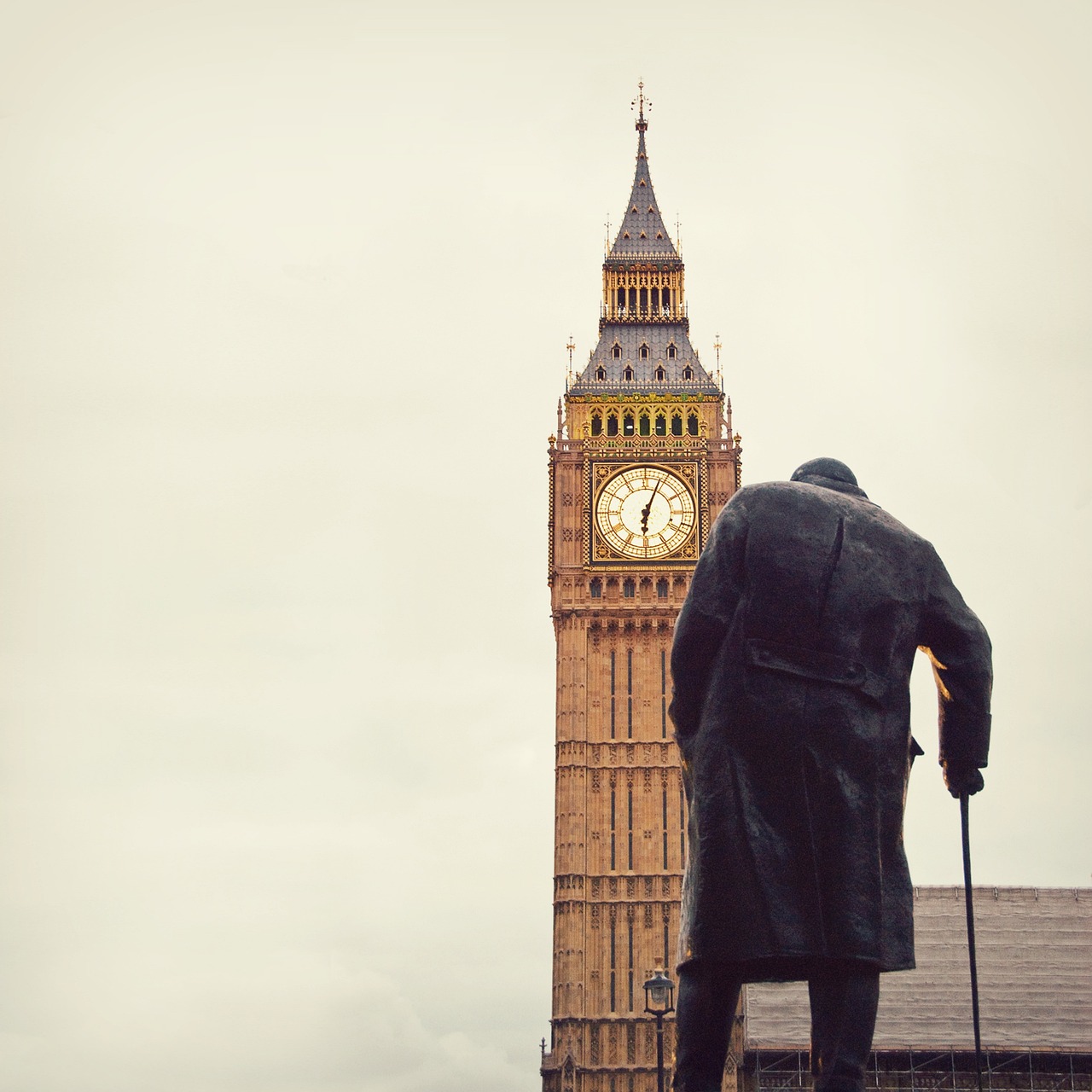
Utilitarianism and Political Ethics
Utilitarianism, a philosophical doctrine that emerged in the late 18th and early 19th centuries, is fundamentally about maximizing happiness and minimizing suffering. At its core, this ethical theory posits that the best action is the one that produces the greatest good for the greatest number. But how does this principle translate into the realm of political ethics? Well, that's where things get really interesting!
Imagine a government faced with a difficult decision: should they allocate limited resources to healthcare or education? A utilitarian approach would analyze the potential outcomes of each option, weighing the benefits to society. If investing in healthcare leads to a healthier population, which in turn increases productivity and overall happiness, then that might be the preferred choice. This decision-making process emphasizes the importance of considering the collective well-being over individual preferences.
However, the application of utilitarianism in political ethics isn't without its challenges. Critics argue that it can justify morally questionable actions if they result in a net increase in happiness. For instance, if a government decides to impose strict laws that curtail personal freedoms in order to maintain public order and safety, a utilitarian might argue that the overall happiness of society justifies such measures. This brings us to a critical point: the balance between individual rights and the collective good.
To illustrate this balance, let's consider an example:
| Scenario | Utilitarian Perspective | Ethical Concerns |
|---|---|---|
| Surveillance for Security | Increased safety for the majority | Invasion of privacy for individuals |
| Taxation for Welfare | Improved quality of life for the underprivileged | Potential resentment from higher-income individuals |
| Mandatory Vaccination | Herd immunity protects the community | Violation of personal autonomy |
As we can see, while utilitarianism provides a framework for evaluating political decisions based on their potential outcomes, it also raises significant ethical dilemmas. Should the happiness of the majority outweigh the rights of the minority? This question is at the heart of many political debates today. Furthermore, the challenge lies in accurately measuring happiness and suffering, as these concepts are inherently subjective and can vary widely among different populations.
Moreover, the implications of utilitarianism extend beyond immediate political decisions. It encourages policymakers to think long-term, considering the broader societal impact of their actions. For example, investing in education may not yield immediate returns, but in the long run, it can lead to a more informed and productive citizenry, ultimately enhancing societal happiness. Thus, utilitarianism not only influences ethical considerations in politics but also shapes the very fabric of governance and policy-making.
In conclusion, utilitarianism serves as a powerful lens through which to examine political ethics. While it advocates for the greater good, it also challenges us to confront the complexities of individual rights and collective responsibility. As we navigate the intricate web of political decisions, the principles of utilitarianism remind us that our choices can have profound implications for the happiness and well-being of society as a whole.
- What is utilitarianism? Utilitarianism is an ethical theory that suggests that the best action is the one that maximizes overall happiness.
- How does utilitarianism apply to politics? Utilitarianism influences political decisions by encouraging leaders to consider the outcomes of their actions on the happiness of the majority.
- What are the criticisms of utilitarianism? Critics argue that it can justify actions that violate individual rights if those actions lead to greater overall happiness.
- Can utilitarianism guide ethical decision-making? Yes, utilitarianism can provide a framework for evaluating the ethical implications of political decisions based on their potential outcomes.

Modern Political Ideologies
In today's world, political ideologies shape our societies, influence governance, and define the ongoing debates that characterize our lives. From the bustling streets of urban centers to the quiet corners of rural communities, the ideological battles we engage in reflect deeper philosophical roots that have evolved over centuries. Modern political ideologies are not just abstract concepts; they are the frameworks through which we interpret our rights, responsibilities, and the very essence of community.
At the heart of these ideologies lies a fascinating interplay between individual rights and collective responsibilities. Take, for example, liberalism, which champions personal freedom and equality. It arises from Enlightenment thinkers who believed in the power of reason and individual autonomy. Yet, as we delve deeper, we see that liberalism is often challenged by conservatism, which emphasizes tradition, social stability, and the importance of established institutions. The debate between these two schools of thought is not just academic; it resonates in our daily lives, influencing everything from policy decisions to cultural norms.
Furthermore, we cannot overlook the impact of socialism, which advocates for social ownership and egalitarianism. This ideology stems from a desire to address the inequalities perpetuated by unfettered capitalism. Socialists argue that a society should prioritize the welfare of its citizens over profit, pushing back against the notion that market forces alone can lead to a just society. This presents a stark contrast to the principles of libertarianism, which posits that individual liberty should be paramount, often at the expense of collective welfare.
To better understand these ideologies, let’s break them down into three main categories:
| Ideology | Core Beliefs | Philosophical Roots |
|---|---|---|
| Liberalism | Individual freedom, equality, democracy | Enlightenment thinkers (e.g., John Locke) |
| Conservatism | Tradition, social stability, authority | Edmund Burke and others |
| Socialism | Social ownership, egalitarianism, welfare | Karl Marx and others |
Moreover, the rise of communitarianism adds another layer to this complex landscape. This ideology emphasizes the importance of community and social responsibility, arguing that individual rights must be balanced with the needs of the community. Communitarians challenge the individualistic tendencies of liberalism, suggesting that a healthy society is one where citizens actively participate in the collective good. This perspective raises critical questions: Can we truly be free if our communities are fractured? Is individual success meaningful in a society that neglects the welfare of its members?
As we navigate through these modern ideologies, it becomes clear that they are not just theoretical constructs; they are living, breathing entities that evolve with society's needs. The debates surrounding these ideologies are crucial for understanding the political landscape we inhabit today. They challenge us to think critically about our values and the kind of society we want to build.
- What is the difference between liberalism and conservatism?
Liberalism focuses on individual rights and equality, while conservatism emphasizes tradition and social order. - How does socialism differ from capitalism?
Socialism advocates for social ownership and egalitarian distribution of resources, whereas capitalism prioritizes private ownership and market competition. - What role does communitarianism play in modern politics?
Communitarianism stresses the importance of community and social responsibility, arguing that individual rights should not undermine the common good.
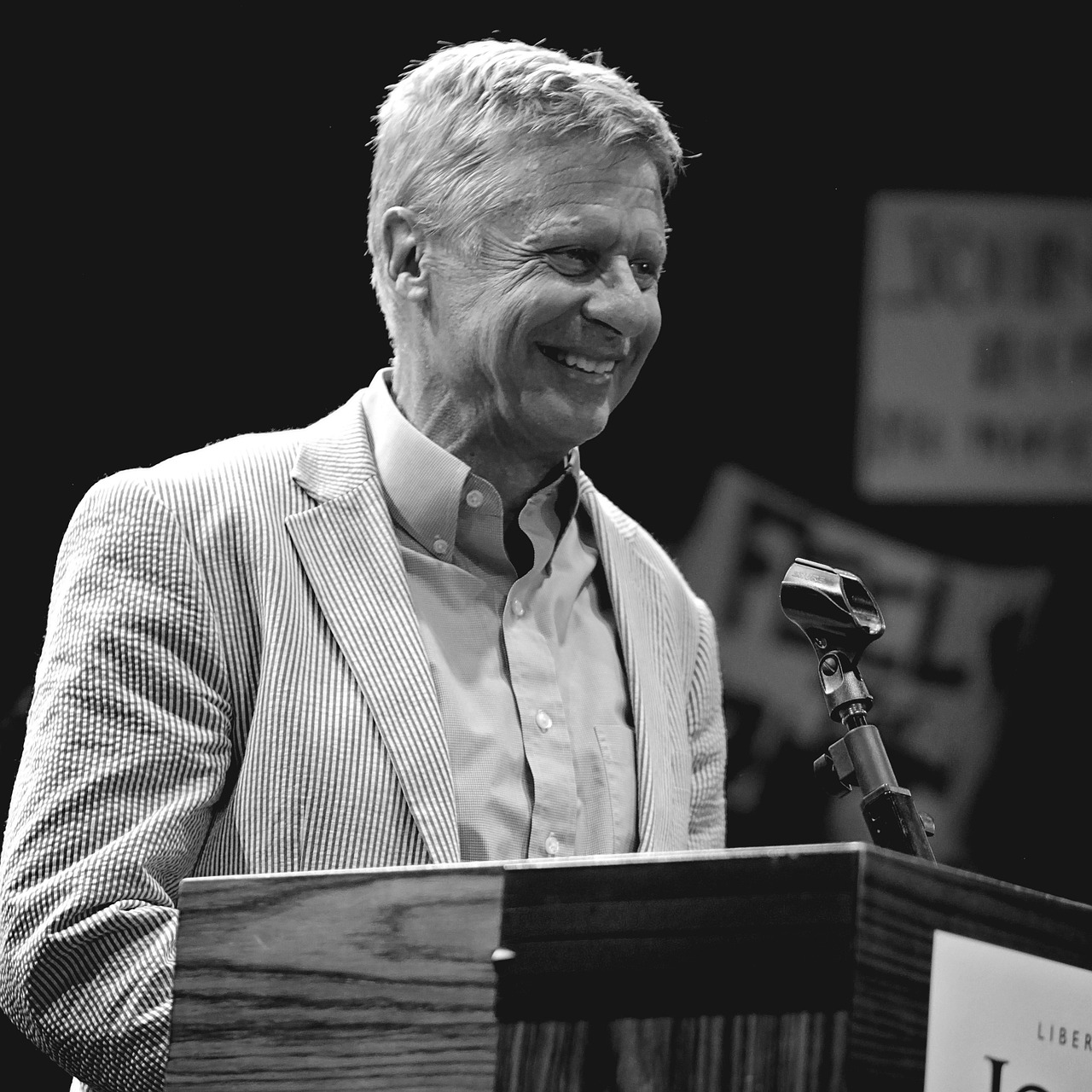
Libertarianism and Individualism
Libertarianism is often viewed as a beacon of individualism in the political landscape. At its core, it champions the idea that individuals should have the freedom to make their own choices without undue interference from the government or other institutions. Imagine living in a world where your personal choices dictate your life’s path, free from the heavy hand of authority. This philosophy resonates deeply with those who value personal autonomy and self-determination.
One of the fundamental tenets of libertarianism is the belief that individuals are best equipped to know what is in their own interest. This perspective leads to a strong advocacy for limited government. Libertarians argue that a minimal state should exist only to protect individual rights, such as life, liberty, and property. Any government action beyond this, they contend, infringes upon personal freedoms and can lead to tyranny. In this sense, libertarianism serves as a guardrail against the potential overreach of governmental power.
The roots of libertarian thought can be traced back to influential philosophers who emphasized individual rights and personal liberty. Thinkers such as John Stuart Mill and Friedrich Hayek have laid the groundwork for modern libertarian ideology. Mill, for instance, argued for the importance of personal freedom in his work "On Liberty," where he famously stated, “Over himself, over his own body and mind, the individual is sovereign.” This idea encapsulates the libertarian ethos, prioritizing individual choice above all else.
Furthermore, libertarianism is often juxtaposed with collectivist ideologies, which prioritize the group over the individual. This contrast highlights a fundamental philosophical divide in political theory. While collectivist approaches may argue for the necessity of social structures and regulations to ensure fairness and equality, libertarians counter that such measures often lead to the erosion of individual freedoms. They believe that society flourishes best when individuals are left to pursue their own interests, leading to innovation, creativity, and personal responsibility.
To further illustrate the libertarian perspective, consider the following principles that encapsulate its core beliefs:
- Self-Ownership: The idea that individuals own their bodies and lives, and thus have the right to make decisions regarding them.
- Voluntary Association: The belief that all interactions and relationships should be consensual, free from coercion.
- Free Markets: The advocacy for unregulated markets, where individuals can trade goods and services without government interference.
Libertarianism’s emphasis on individualism also raises important questions about the role of community and social responsibility. While it promotes personal freedom, critics argue that it can lead to a lack of concern for the collective good. However, many libertarians assert that a truly free society allows for voluntary cooperation and charitable actions, fostering a community spirit without the need for coercive measures.
In conclusion, libertarianism and individualism are intricately connected, with the former serving as a political expression of the latter. As we navigate the complexities of modern governance and social interaction, understanding these principles becomes increasingly vital. The ongoing dialogue between individual rights and collective responsibilities will shape the future of political theory and practice. So, what do you think? Is a society that prioritizes individual freedom the key to a prosperous future, or does it risk neglecting the needs of the community?
Q: What is the main goal of libertarianism?
A: The main goal of libertarianism is to maximize individual freedom and minimize government intervention in personal and economic matters.
Q: How does libertarianism differ from other political ideologies?
A: Libertarianism differs from other political ideologies primarily in its emphasis on individual rights and limited government, contrasting sharply with collectivist approaches that prioritize group needs over individual freedoms.
Q: Can a libertarian society provide for the common good?
A: Yes, many libertarians believe that a society based on voluntary cooperation and individual responsibility can effectively address communal needs without coercive government intervention.

Communitarianism and the Common Good
Communitarianism is a political and social philosophy that emphasizes the connection between the individual and the community. It challenges the notion that individuals exist in isolation, advocating instead for a view that recognizes the importance of social ties and communal responsibilities. At its core, communitarianism argues that the common good should be a priority in political discourse and governance. This perspective is particularly relevant in today's society, where individualism often overshadows collective interests.
The idea of the common good is not just a theoretical concept; it has practical implications for how we organize our communities and govern ourselves. Communitarians believe that a healthy society requires a balance between individual rights and the welfare of the community. This balance is crucial for fostering social cohesion and ensuring that all members of society can thrive. For instance, when policies are designed solely with individual freedoms in mind, they may inadvertently neglect the needs of vulnerable populations. Therefore, communitarianism calls for a more holistic approach to governance, one that considers the broader impact of decisions on community well-being.
One of the key figures in communitarian thought, Amitai Etzioni, emphasizes that the common good is about fostering a sense of belonging and shared responsibility among community members. He argues that to achieve a just society, we must cultivate values such as cooperation, mutual respect, and civic engagement. This is not merely an ethical stance; it is a practical necessity in a world where social fragmentation can lead to conflict and disunity. For example, community initiatives that promote local engagement—such as neighborhood clean-up days or town hall meetings—can strengthen social bonds and enhance the collective well-being of residents.
In the context of political discourse, communitarianism challenges the extremes of both liberalism and conservatism. While liberalism often prioritizes individual rights, and conservatism may focus on tradition and authority, communitarianism seeks to find a middle ground. It encourages dialogue and collaboration among diverse groups, recognizing that individuals have different backgrounds, beliefs, and needs. By fostering an environment of mutual respect, communitarianism aims to create policies that reflect the values and interests of the community as a whole.
Furthermore, communitarianism advocates for the idea that individuals are shaped by their communities. Our identities, values, and beliefs are influenced by the social contexts in which we live. Therefore, when we consider political decisions, it is essential to account for the communal aspect of our lives. This perspective is particularly relevant in debates surrounding issues like education, healthcare, and social welfare, where the impact of policies can significantly affect community dynamics.
In summary, communitarianism offers a compelling framework for understanding the relationship between individuals and society. By emphasizing the common good, it encourages us to look beyond our personal interests and consider how our actions impact those around us. As we navigate the complexities of modern governance, embracing communitarian principles can lead to more inclusive, equitable, and harmonious communities.
- What is communitarianism? Communitarianism is a philosophy that emphasizes the importance of community and social responsibilities over individualism.
- How does communitarianism relate to the common good? It posits that the common good should be prioritized in political and social decision-making to ensure community welfare.
- Who are some key thinkers in communitarianism? Amitai Etzioni is a prominent figure in this field, advocating for community engagement and shared values.
- What are the practical implications of communitarianism? It encourages policies that balance individual rights with community needs, fostering social cohesion and responsibility.
Frequently Asked Questions
- What is the relationship between philosophy and political theory?
The relationship is intricate and profound. Philosophy provides the foundational ideas that shape political thought. For instance, concepts of justice, governance, and ethics are deeply rooted in philosophical inquiry. Political theory, in turn, applies these philosophical concepts to real-world governance and social structures, influencing everything from laws to societal norms.
- Who are some key philosophers that have influenced political theory?
Many philosophers have left their mark on political theory, but a few stand out. Plato, Aristotle, Hobbes, Locke, Rousseau, and Mill are just a few names that come to mind. Each of these thinkers introduced unique ideas that have shaped the way we understand governance, ethics, and the role of individuals in society.
- What is Plato's vision of an ideal state?
Plato's vision revolves around the concept of justice and the philosopher-king. He believed that a just society is one where rulers are wise and knowledgeable, guiding the state towards the common good. His idea of an ideal state emphasizes the importance of education and virtue among leaders, ensuring that they govern not for personal gain but for the benefit of all.
- How does Aristotle's political realism differ from Plato's idealism?
While Plato focused on ideals and abstract forms of justice, Aristotle took a more practical approach. He emphasized the importance of ethics and virtue in politics, arguing that a successful society relies on active citizen participation and a balance of power. Aristotle’s realism is about understanding the world as it is, rather than how it should be, making his views more applicable to everyday governance.
- What are social contract theories, and why are they important?
Social contract theories, proposed by thinkers like Hobbes, Locke, and Rousseau, explore the idea that governments derive their authority from the consent of the governed. These theories are crucial because they lay the groundwork for modern democratic principles, emphasizing individual rights and the responsibilities of the state towards its citizens.
- How does utilitarianism influence political decision-making?
Utilitarianism, which advocates for actions that maximize overall happiness, plays a significant role in political ethics. It encourages policymakers to consider the consequences of their decisions and strive for outcomes that benefit the greatest number of people. This ethical framework can guide legislation and governance, ensuring that policies are not only effective but also morally sound.
- What are the main modern political ideologies?
Modern political ideologies include liberalism, conservatism, socialism, and libertarianism, among others. Each ideology is rooted in different philosophical foundations and offers varying perspectives on issues like individual rights, government roles, and economic systems. Understanding these ideologies helps us navigate the complexities of contemporary political discourse.
- What is the significance of libertarianism in political theory?
Libertarianism emphasizes individual freedom and autonomy, arguing that the role of government should be minimal. This ideology is significant because it challenges traditional views on state authority and advocates for personal responsibility. Libertarians believe that individuals should have the freedom to make choices as long as they do not infringe on the rights of others.
- How does communitarianism balance individual rights and community responsibility?
Communitarianism asserts that individual rights should be balanced with the needs of the community. It emphasizes the importance of social responsibility and the common good, arguing that individuals thrive best in a supportive community. This perspective encourages citizens to engage with one another and contribute to societal well-being, fostering a sense of belonging and collective responsibility.



